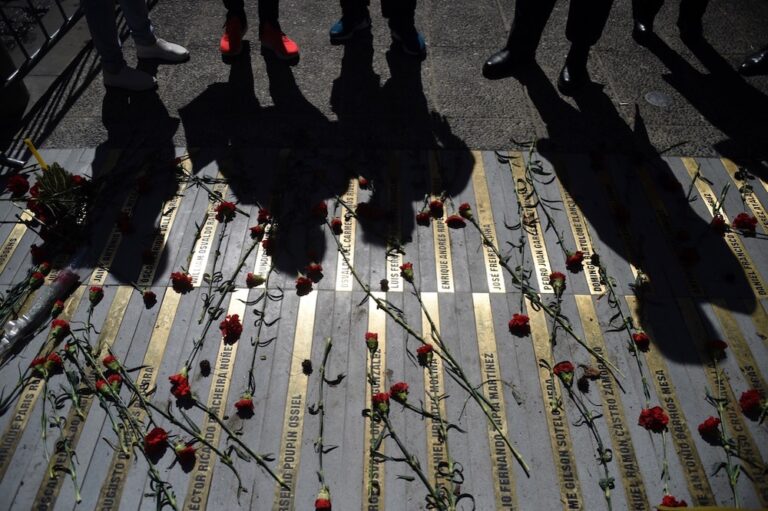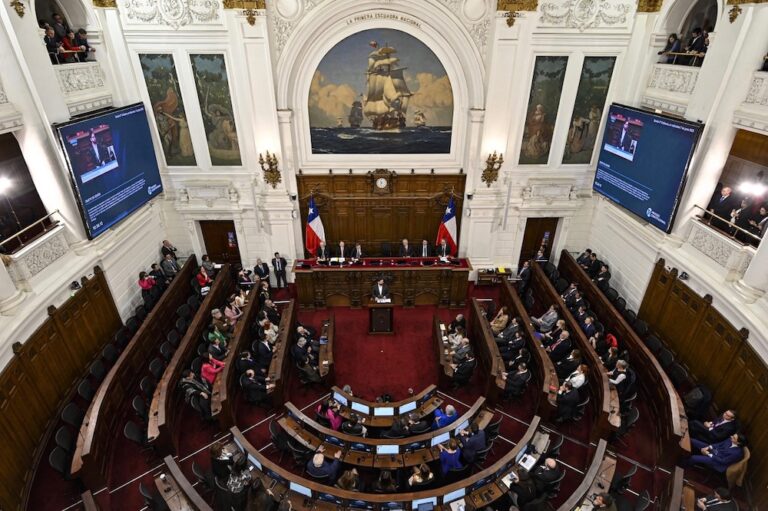Unlike neighbouring countries such as Argentina and Uruguay, Chile never repealed media regulation framework established under the 1973-1990 military dictatorship.
On the eve of Chile’s presidential election on 17 November, Reporters Without Borders urges the candidates to give a firm commitment to democratising information and communications. We appeal especially to the two main contenders Michelle Bachelet, who served previously as president from 2006 to 2010, and Evelyn Matthei.
Unlike neighbouring countries such as Argentina and Uruguay, Chile never repealed the regulation framework established under the 1973-1990 military dictatorship. In the years since the return to democracy, governments run by the Concert of Parties for Democracy, including the one headed by Bachelet, have not reformed the system based on concentrated private ownership, which is anathema to pluralism.
The mechanisms that perpetuate such a system must be dismantled urgently. In first place is the government subsidies paid to the print media, of which the duopoly El Mercurio and Copesa – owners of 95 percent of print titles — are the sole beneficiaries. Second is the 1982 general law on communications, passed during the Pinochet era, and its section 36B, which was added later and provides for a custodial sentence for broadcasting on an illegal frequency. This legislation has turned broadcasting into a closed shop, at the expense of small, independent and community-based radio and television stations, which have been waiting for years to be granted official status.
The law passed in May 2010, providing for the establishment of community and citizens’ radio broadcasting services, must be applied. The transfer or reallocation of frequencies must also be imposed, since the consortium Iberoamericana Radio Chile, which holds 60 percent of them, refuses to abide by the 2012 agreement between broadcasters and the telecoms regulator Subtel.
Reporters Without Borders has submitted these recommendations, as well as the decriminalisation of press offences which is still in abeyance, to the United Nations Human Rights Council, which is due to discuss Chile at its Universal Periodic Review session in January and February next year. Will they be taken into consideration? The circumstances do not necessarily point in that direction.
Lost illusions
On 13 August this year, the UN Committee on the Elimination of Racial Discrimination heard testimony from Mireya Manquepillan, the head of Kimche Mapu, a radio station of the indigenous Mapuche community. She spoke of the plight endured by her people, including in the field of news and information.
Immediately after she spoke out, the government announced a plan for indigenous radio stations for 2014-2016. “We were promised 30 new stations, a budget of 10 million pesos (about 15,000 euros) and a pilot project at the end of October which Kimche Mapu was to have undertaken,” Manquepillan told Reporters Without Borders. “Since then, there’s been nothing. It was all talk.”
During a recent visit to Chile by Reporters Without Borders, Tomas Mosciatti, the manager and co-owner of the radio station Bío Bío, also expressed his concerns: “The 2010 law opened up community radio only slightly and just for those who put out municipal propaganda or preach the Gospel, who are ‘community’ in name only.
“In general terms, the radio audience has declined significantly and there is little hope that digital television, which will generate very few new channels, will be its salvation.”
The Digital Terrestrial Television Act received final approval by the Senate on 15 October but its enactment has been halted by the president. The main broadcasting groups aside, its critics have been harsh. The legislation theoretically allocates 40 percent of the new capacity to regional or local broadcasters. However, observers point out that these have no real autonomy.
“Most are appendages of the main national broadcasters,” said Mosciatti. “The market will decide.”
In the view of officials of the alternative television station Señal 3 La Victoria: “This law is designed only to extend the existing media establishment. There is no redistribution.”
Chile’s media oligopoly, which was the target of social protests in 2011, has yet to be overhauled. This will entail the abolition of Pinochet’s legacy, which still haunts the country and its journalists.


